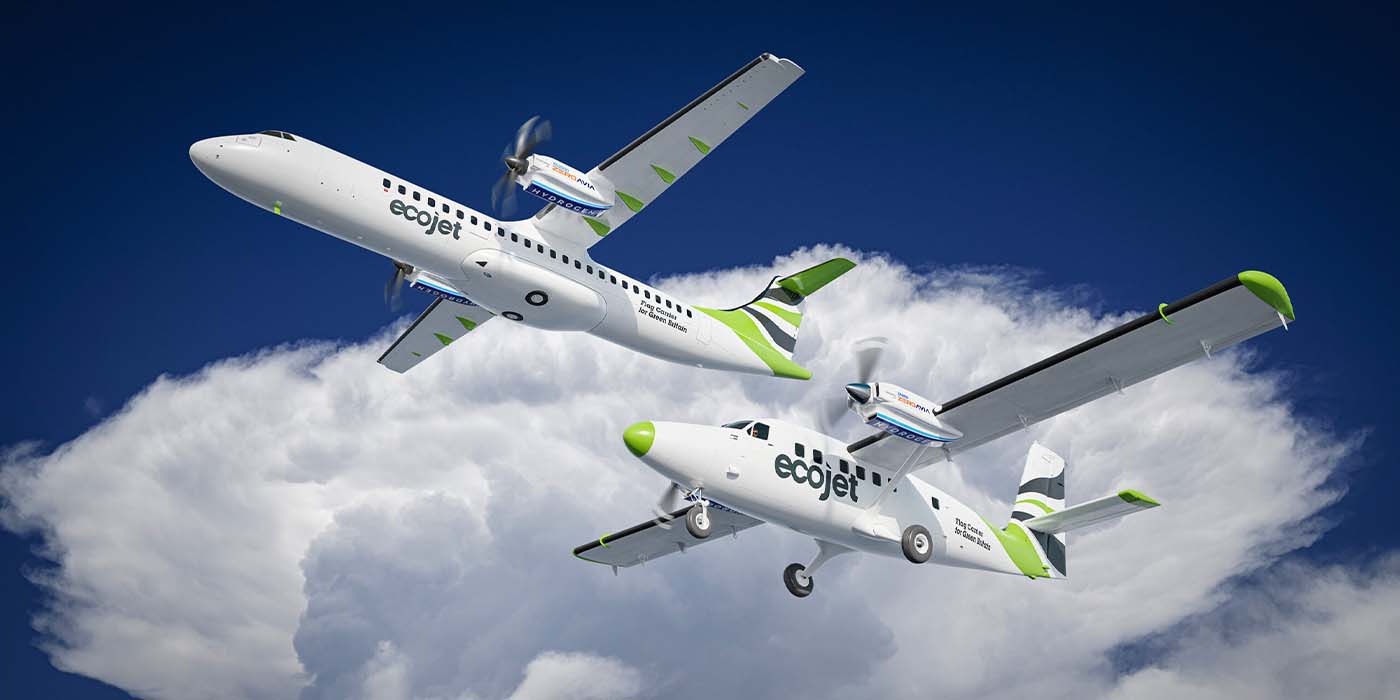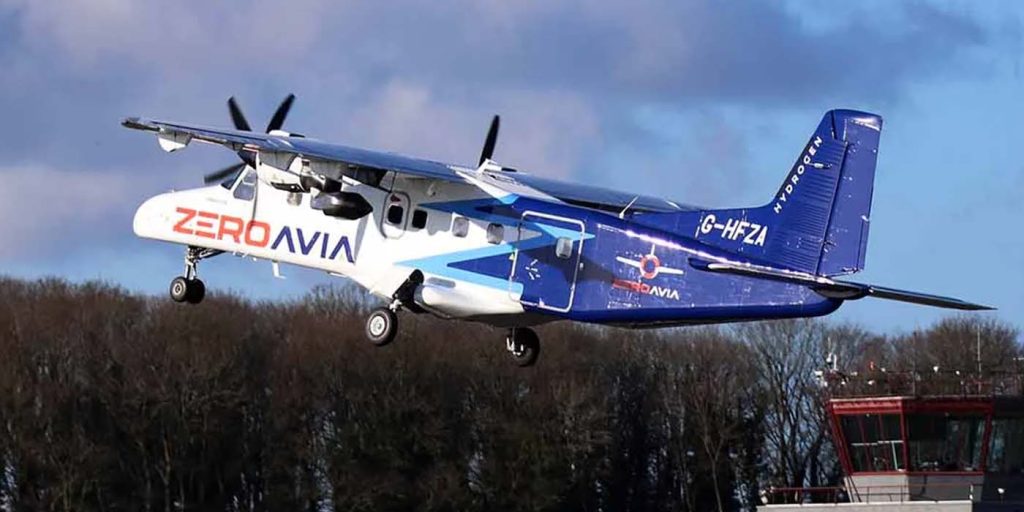
Hydrogen-electric plane technology developer ZeroAvia announced it has signed an agreement with the newly launched, carbon-conscious airline EcoJet to provide up to 70 zero-emission plane engines. With ZeroAvia’s help, Ecojet looks to become the world’s first all-electric airline.
ZeroAvia continues to hit milestones on a publicly shared development timeline that spans an entire decade. To date, we’ve seen the company secure experimental flight certificates from both the CAA in the UK and the FAA in the US – home to its two current headquarters.
Last January, ZeroAvia completed its first flight with its 19-passenger hydrogen-electric plane – the largest to take to the skies at the time. That accomplishment aside, the company has its sights set on developing larger and more powerful planes – vowing to deliver a 40- to 80-seat aircraft with up to 700 miles of range by 2027.
Before then, however, we may see ZeroAvia’s technology help propel different planes under a new agreement with Ecojet – a UK-based airline founded a mere five months ago. Created by green energy industrialist and climate activist Dale Vince, Ecojet looks to become the world’s first electric airline using a fleet of aircraft powered by renewable energy… eventually.
Still in its infancy, Ecojet has recruited the technology of ZeroAvia to help get its hydrogen-electric planes airborne in the next couple of years.

ZeroAvia to help Ecojet begin hydrogen-electric flights
ZeroAvia shared details of its latest agreement with an airline today, which will enable the sale of up to 70 hydrogen-electric engines to Ecojet, including its ZA600 and ZA2000. The deal was facilitated with the help of zero- and low-emission technology financier MONTE, who signed a definitive purchase agreement with ZeroAvia over the summer.
ZeroAvia states that MONTE will provide financing for Ecojet’s powertrain purchase, installation, and operation, meaning that Ecojet will become the lessor’s first confirmed customer. Ecojet founder Dale Vince spoke about the agreement between the British companies:
We don’t have to give up flying to live a green lifestyle or to get to net zero as a country – and this is big news. The technology is here now and the planes are coming very soon – carbon free, guilt free flying is just around the corner. And although aviation is responsible for only a small part of all global emissions, it occupies a far bigger space than that in our psyche. The hearts and minds value of this new opportunity outweighs the carbon issue significantly. It shows that everything we need to do, can be done, with a low to zero carbon footprint. And that is big news and a big encouragement to us all.
ZeroAvia, MONTE, and Ecojet say they will work together alongside local airports to identify, develop, and help finance the first pathways to hydrogen-electric commercial operations in the UK and potentially beyond.
Ecojet says it will begin commercial flights in 2024 using conventionally powered aircraft flying in and out of Edinburgh. Meanwhile, ZeroAvia says it will continue to work toward type certification of its ZA600 engine in 2025. Once that certification is in place, Ecojet intends to retrofit its existing aircraft with hydrogen-electric engines, thus becoming a zero-emissions airline.
According to the release, part of Ecojet’s purchase commitment includes the aforementioned Z2000 hydrogen-electric engines – capable of powering 80-seat regional turboprop aircraft. Ecojet is targeting a start of service for those larger electric planes in 2027.
ZeroAvia recently completed a 10-test flight program using a prototype of its ZA600 on a Dornier 228 aircraft and continues to “develop the core technologies for flying larger aircraft,” like those powered by the Z2000.
FTC: We use income earning auto affiliate links. More.


Comments